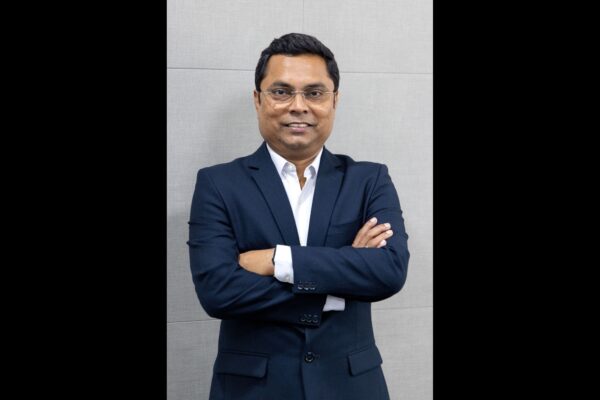RDC utilises the state of the art equipment which is fully automated
RDC is the largest standalone ready mixed concrete company in India with 20 state-of-the-art RMC plants across the country says N Vairamuthu, Managing Director, RDC Concrete India Ltd.
What is your view on the status of the RMC Industry?
The utilisation of commercial ready mix concrete is confined to the real estate sector. As far as the acceptance of the RMC in infrastructure sector it is still in nascent stages. The residential real estate sector is currently in a state of flux owing to the large unsold inventory. The infrastructure projects which are getting executed depend largely upon the captive ready mix plants due to the extensive inhouse consumption.
What are the major challenges the Indian RMC Industry is facing?
In the past two years, the real estate developer’s sales have dwindled as potential home buyers stayed away. Debt laden developers in the country have been struggling with slow sales, high unsold inventory, delayed construction, high interest rates and stalled projects.
The equipment manufacturers specially and the industry as a whole needs cognizance and work to skill the work force. The availability of skilled manpower is also a major challenge. Among the other measures, standardization of the batching plant is necessary; certification of the plants should be made mandatory. This would not only ensure uniform playing field but also elevate the construction quality in the country. The government needs to implement GST at the earliest so as to simplify the tax structures.
How does RDC ensure consistent quality for their production?
RDC utilises the state of the art equipment which is fully automated. There exists an extensive system of checks at the entry point for the raw materials and aggregates likewise the finished products too are subjected to stringent checks. The technical team monitors the complete process as per the quality assurance procedures laid down in our manuals. We can firmly assure that our products match and surpass the specifications of the Indian standard codes.
What is your near-term outlook on the industry?
As the commercial concrete industry is heavily dependent on the real estate sector, we cannot expect a substantial growth in a years time. But the acceptance of ready mix concrete is getting some traction as the developers do want to deliver a sustainable construction in a tighter time frame. Government initiatives like 100 Smart Cities Project, Housing for All, Make in India will drive the construction sector in the near future and this would open better avenues for the commercial concrete industry too. The implementation of GST in 2016 could also remove some of the tax anomalies. The Real Estate Bill at the centre too would promote more investments in real estate thereby giving an impetus to the construction activities.
What are the specialised concrete products offered by RDC?
Our portfolio of products caters to a wide array of applications for which concrete is used and it includes
Fibre Concrete “Concrete That Takes a Lot of “Tension”
FibreCrete is a concrete mix with steel / synthetic fibres and special concrete additives to enhance the flexural strength and other important mechanical properties of concrete. Fibre Concrete can be recommended for all types of pavement work, girders, piers where flexural strength of concrete is required. FiberCrete contains micro fibres for added tensile strength, better binding ability, resistance to cracking and abrasion.
SelfCrete A Combination of Cost Efficiency and Free Flowing Properties
RDC’s SelfCrete presents the end user with opportunities to place concrete in complex structures, without costing as much as SCC. SelfCrete gives SCC like properties at lower cost and lower powder content, making it easy for the end user to place concrete like SCC, with zero user intervention in the compaction and concrete finishing stages. SelfCrete can significantly cut down the construction expenses by reducing the resources required for placing, compacting and finishing concrete.
TempCrete Temperature Controlled concrete Solutions
TempCrete is concrete which reduces the maximum temperatures generated at the core of the structure, due to the heat generation in the hydration process. This in turn prevents thermal process and related internal micro cracking due to large temperature differential associated with mass concrete members. The application is generally enforced on mass concrete members such as large footings, raft foundations, dams, thick retaining walls and zones where long term durability is a concern.
ProCrete Super Retention Concrete Mixes
ProCrete is concrete with very high workability retention properties, it does not have any adverse affect on other concrete parameters such as cohesiveness and initial strength. ProCrete uses special concrete additives which keep the concrete workability relatively same up to its designed retention time, unlike conventional concrete, which tends to segregate initially and gradually lose workability.
ProCrete has been specifically designed for columns and retaining walls and small isolated footings which consume more time and effort. Major applications are for bucket placing, column concreting, retaining walls, footings, floors, beams, column caps or any other concreting application which would require concrete with extended workability retention.
What is the geographical spread for RDC Plants in the country?
In 2005 RDC had five RMC plants and one paver block plant, with operations in North India. IVFA acquired a 100% stake in RDC Concrete (India) Pvt. Limited in 2005. Today, RDC is the largest standalone ready mixed concrete company in India with 20 state-of-the-art RMC plants across the country. An emphasis on quality and innovation has enabled RDC to build a client base that includes some of the most respected names from the Indian building and construction sector. Besides excellent customer service and cost leadership, RDC also has a superior track-record in safety and environmental consciousness. Our RMC penetration stands at 9-10 per cent of the market at present, it was around 4 per cent few years back. RDC’s market share in different cities is different – it ranges from 7 per cent to 30 per cent in different cities.









